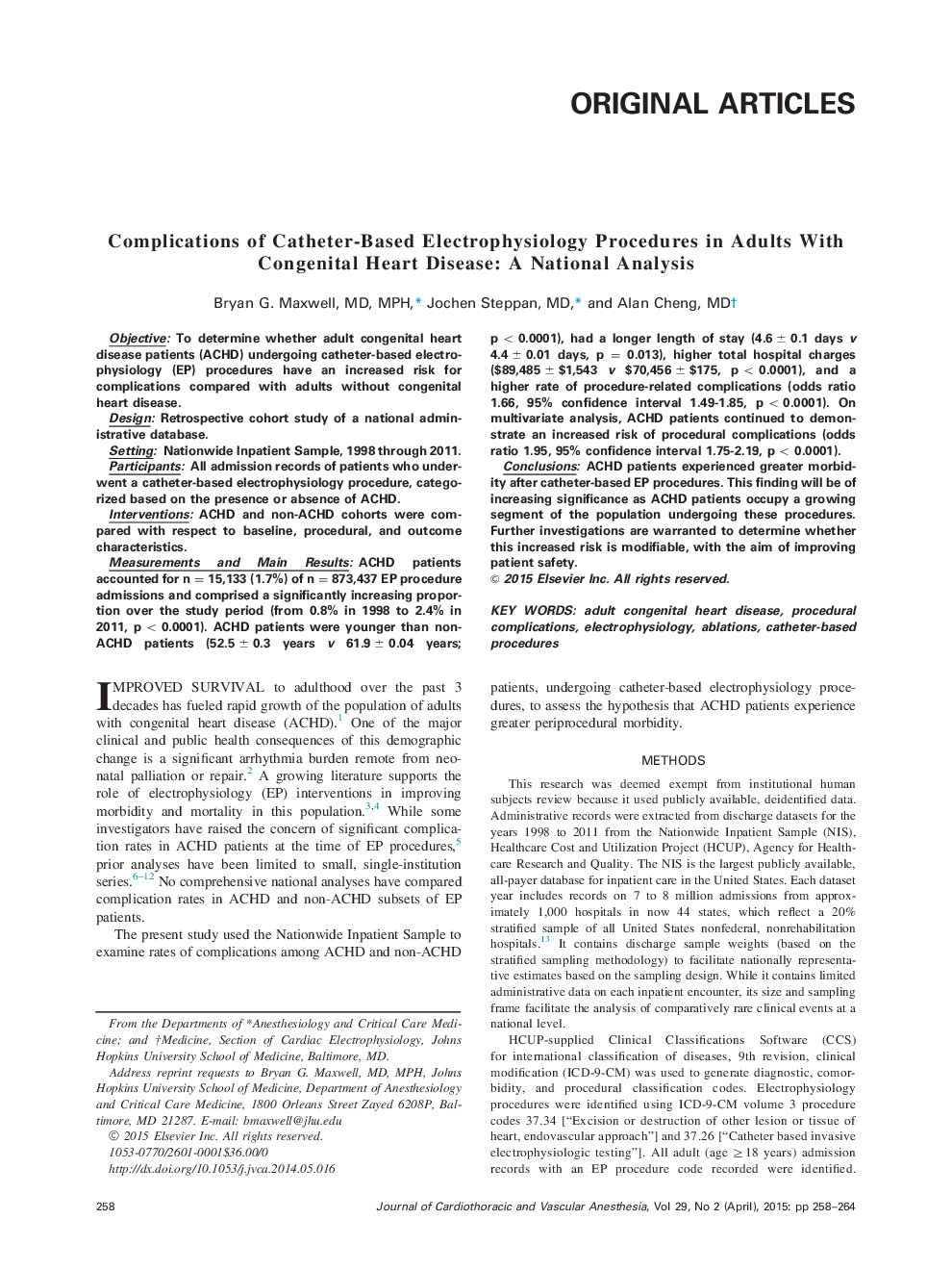| Article ID | Journal | Published Year | Pages | File Type |
|---|---|---|---|---|
| 2758799 | Journal of Cardiothoracic and Vascular Anesthesia | 2015 | 7 Pages |
ObjectiveTo determine whether adult congenital heart disease patients (ACHD) undergoing catheter-based electrophysiology (EP) procedures have an increased risk for complications compared with adults without congenital heart disease.DesignRetrospective cohort study of a national administrative database.SettingNationwide Inpatient Sample, 1998 through 2011.ParticipantsAll admission records of patients who underwent a catheter-based electrophysiology procedure, categorized based on the presence or absence of ACHD.InterventionsACHD and non-ACHD cohorts were compared with respect to baseline, procedural, and outcome characteristics.Measurements and Main ResultsACHD patients accounted for n = 15,133 (1.7%) of n = 873,437 EP procedure admissions and comprised a significantly increasing proportion over the study period (from 0.8% in 1998 to 2.4% in 2011, p<0.0001). ACHD patients were younger than non-ACHD patients (52.5±0.3 years v 61.9±0.04 years; p<0.0001), had a longer length of stay (4.6±0.1 days v 4.4±0.01 days, p = 0.013), higher total hospital charges ($89,485±$1,543 v $70,456±$175, p<0.0001), and a higher rate of procedure-related complications (odds ratio 1.66, 95% confidence interval 1.49-1.85, p<0.0001). On multivariate analysis, ACHD patients continued to demonstrate an increased risk of procedural complications (odds ratio 1.95, 95% confidence interval 1.75-2.19, p<0.0001).ConclusionsACHD patients experienced greater morbidity after catheter-based EP procedures. This finding will be of increasing significance as ACHD patients occupy a growing segment of the population undergoing these procedures. Further investigations are warranted to determine whether this increased risk is modifiable, with the aim of improving patient safety.
